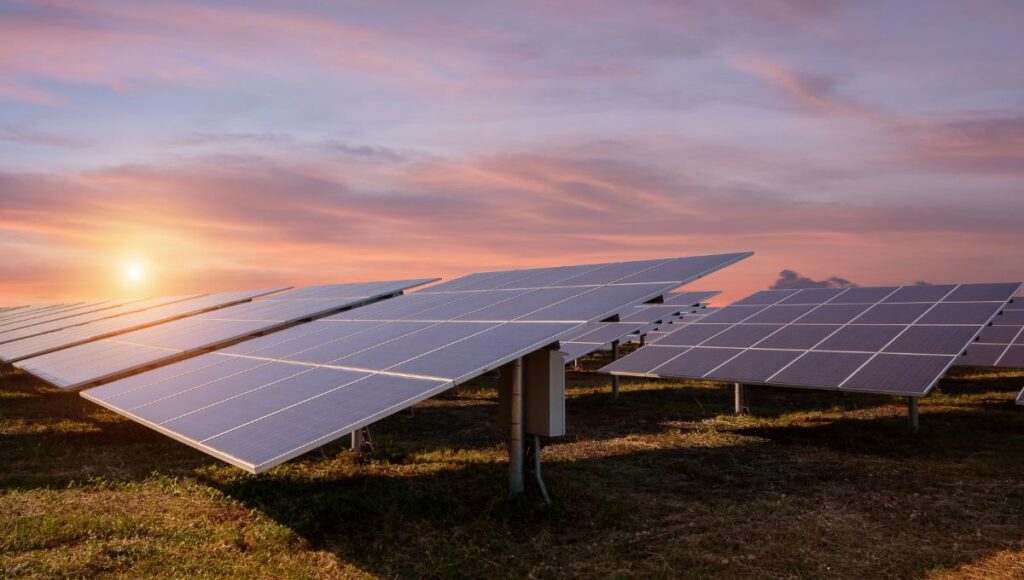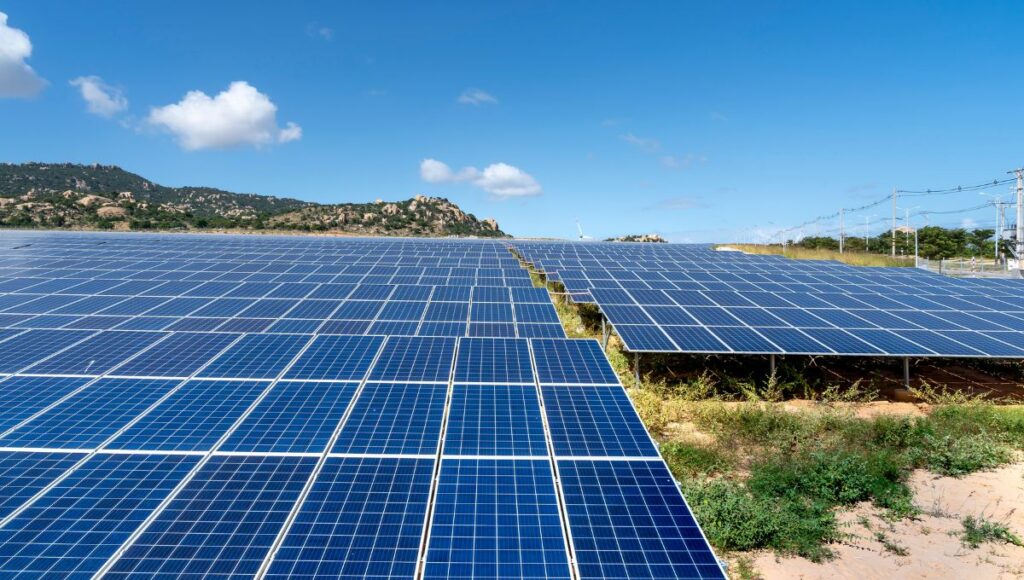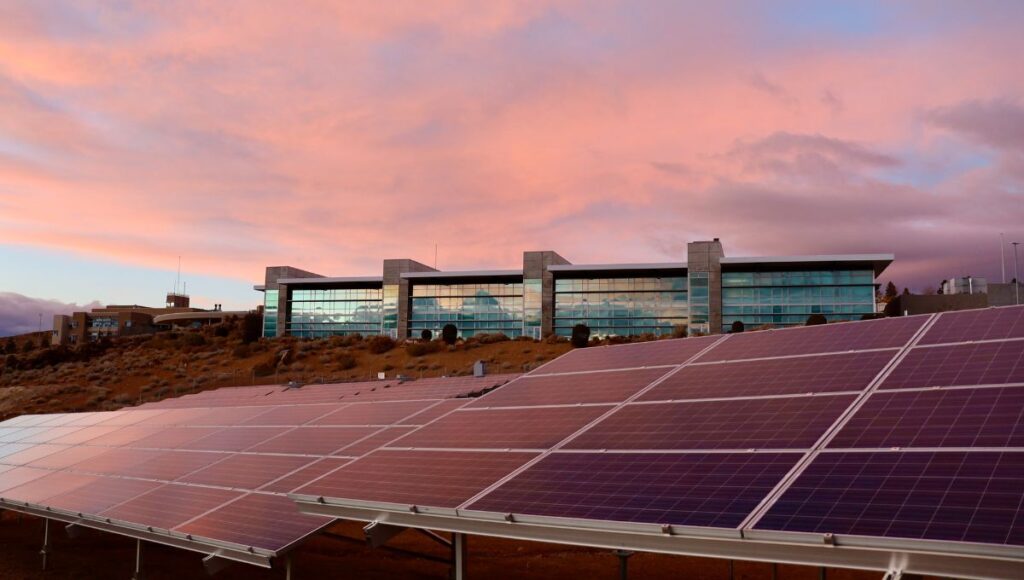How long can solar panels last without sun? Can they store energy for cloudy days or nighttime use? These are key questions for anyone considering solar panels. Understanding this is essential to see if they fit your energy needs.
Solar panels don’t store energy. They rely on solar batteries or a grid connection for power when there’s no sunlight. On sunny days, panels generate electricity, and excess energy is stored in batteries or sent to the grid for later.
For those living in areas with less sunlight or frequent overcast conditions, this setup ensures you still have a reliable energy source. Combining solar panels with a battery system or grid connection is the best way to maximize their efficiency and keep your home powered, rain or shine.
Table of Contents
How do solar panels work without direct sunlight?
Solar panels can generate electricity even on cloudy days by using diffuse sunlight. While their output is lower than on sunny days, modern panels are efficient in indirect light, providing a consistent energy supply in all weather.
1. Using Diffuse Sunlight
Solar panels capture light scattered in the atmosphere, known as diffuse sunlight. Even on overcast days, enough light filters through the clouds to allow the panels to produce electricity, albeit at a reduced capacity compared to direct sunlight.
2. Advanced Panel Technology
Modern solar panels use high-efficiency materials capable of harvesting energy in low-light conditions. Innovations such as monocrystalline designs have dramatically improved their ability to function effectively without direct sunlight.
3. Battery Integration for Backup
When sunlight levels are insufficient, stored energy in solar batteries can power your home. This practical approach ensures you have electricity even during less sunny periods, making your solar system more reliable and effective year-round.
Can solar panels provide energy during cloudy weather?

Yes, solar panels generate energy on cloudy days. While less efficient without direct sunlight, modern technology ensures they still work. With energy storage, solar power remains reliable and practical in all weather.
1. How Solar Panels Work in Cloudy Conditions
- Solar panels absorb diffuse sunlight to produce energy.
- Clouds scatter sunlight, allowing partial energy generation.
- Modern panels are designed for low-light energy harvesting.
- Efficiency drops, but energy output doesn’t halt entirely.
- Technology ensures some electricity even in cloudy weather.
2. The Role of Advanced Solar Technology
- Innovations improve performance in variable light settings.
- Monocrystalline panels enhance energy efficiency in poor light.
- Twin-cell technology minimizes power loss during shading.
- Anti-reflective coatings maximize light absorption effectiveness.
- Research continually enhances solar panel performance features.
3. Benefits of Energy Storage with Solar Batteries
- Solar batteries store extra energy for later use.
- Clouds don’t disrupt access to stored electricity.
- Stored power ensures a constant energy supply at times.
- Solar backups enhance system reliability and overall performance.
- Battery integrations keep homes powered during bad weather.
Do solar batteries store energy for nighttime use?
Yes, solar batteries store energy generated during the day for use at night, ensuring a steady power supply even without sunlight. Solar systems with batteries provide flexibility, reliability, and energy independence, making them a popular choice for homes and businesses.
1. How Solar Batteries Work
Solar batteries collect and store excess energy produced by solar panels during daylight hours. This stored energy is then available for use when panels aren’t actively generating power, such as at night or on cloudy days, creating a seamless energy experience.
2. Advantages of Nighttime Energy Storage
Nighttime energy storage enables consistent electricity usage without relying on the grid. It allows homeowners to save on energy costs, maximize renewable energy use, and maintain power security in case of outages, making it a valuable addition to solar systems.
3. Choosing the Right Solar Battery
Not all solar batteries are created equal, so selecting the right one depends on storage capacity, efficiency, and lifespan. Lithium-ion batteries are popular due to their durability and performance, helping households optimize their energy needs while staying environmentally conscious.
What happens to excess solar energy on sunny days?

On sunny days, any excess solar energy generated by panels is either stored in solar batteries, fed back into the grid, or potentially wasted if neither option is available. Proper energy management ensures homes benefit from sustainable power and maximize the efficiency of their solar systems.
1. Storing Excess Energy in Solar Batteries
- Batteries store energy for night and cloudy days.
- Helps reduce reliance on grid-supplied electricity.
- Provides backup power during unexpected outages efficiently.
- Maximizes the use of available solar energy.
- Extends solar system’s cost-effectiveness over time.
2. Feeding Energy Back into the Grid
- Excess energy can be sold to utility companies.
- Creates an opportunity to earn credits or income.
- Contributes to the broader renewable energy network.
- Helps reduce the strain on the power grid.
- Encourages sustainable energy usage across communities.
3. Avoiding Wastage of Extra-Solar Energy
- Devices may shut down if batteries are full.
- Lack of storage capacity leads to energy loss.
- Smart systems redistribute energy to other appliances efficiently.
- Better planning minimizes waste and enhances sustainability.
- Advanced technologies ensure zero energy goes unused.
Are solar panels reliable in overcast conditions year-round?
Yes, solar panels can generate electricity on cloudy days. While they are less efficient than on sunny days, they still work. Modern solar technology optimizes energy production in diffuse sunlight, ensuring reliable performance even in cloudy regions.
1. How Do Solar Panels Work on Cloudy Days?
Solar panels capture both direct and indirect sunlight. During overcast conditions, they utilize diffuse sunlight scattered by clouds, allowing them to generate power. While the output decreases, energy is still produced to support daily needs.
2. Importance of High-Efficiency Panels
Advanced solar panels are highly efficient even in low-light conditions. These panels ensure consistent energy production despite weather variations, making them a great option for areas prone to cloudy days. Investing in such technologies can significantly enhance energy reliability.
3. Energy Storage as a Backup
Pairing solar panels with battery storage systems is essential for cloudy weather. Batteries store excess energy from sunnier days, acting as a reliable backup when panels produce less power. This ensures continuous electricity supply without compromise.
How can I maximize my solar panel’s efficiency?
Maximizing solar panel efficiency ensures optimal energy output and long-term savings. This requires proper maintenance, correct positioning, and using advanced technology. Careful upkeep and smart placement can greatly improve your solar energy system’s performance.
1. Regular Maintenance and Cleaning
Proper upkeep keeps your solar panels performing their best.
- Clean panels regularly to remove dirt and debris.
- Check for damage to ensure optimal energy production.
- Inspect electrical connections for functionality and safety.
- Trim nearby trees to prevent shading over panels.
- Schedule professional servicing for thorough system assessments.
2. Optimal Placement and Angling
Correct positioning captures the most sunlight available daily.
- Install panels in areas with maximum sun exposure.
- Angle panels to match your region’s sun trajectory.
- Avoid locations obstructed by nearby buildings or objects.
- Adjust angles seasonally for peak sunlight efficiency.
- Use tracking systems to follow the sun’s movement.
3. Using Advanced Solar Technologies
Modern upgrades can enhance the efficiency of your setup.
- High-efficiency panels generate more power in less space.
- Smart inverters optimize energy conversion processes effectively.
- Monitoring systems track and analyze energy usage patterns.
- Battery storage stores excess energy for cloudy days.
- Anti-reflective coatings improve absorption and reduce energy loss.
Conclusion: How long can solar panels last without sun?
Maximizing the efficiency of your solar panels doesn’t have to be complicated. By following these tips for maintenance, placement, and taking advantage of advanced technology, you can ensure your system runs smoothly and generates as much clean energy as possible. Remember, a little effort goes a long way in keeping your solar panels performing at their best. Whether you’re a beginner or a seasoned solar user, staying proactive is key.
FAQ
Q.NO.1 Can solar panels work at night?
Solar panels don’t generate power at night since they need sunlight to produce energy. However, battery storage systems can provide the energy collected during the day for nighttime use.
Q.NO.2 How long can solar panels provide power without sunlight?
Solar panels can’t produce energy without sunlight, but with a good battery storage system, you can use the stored energy for hours, even through the night.
Q.NO.3 Do solar panels degrade if not exposed to sunlight for long periods?
Solar panels are designed to withstand long periods without sunlight and won’t degrade because of it. Just keep them clean and well-maintained for optimal performance.
Q.NO.4 Can solar panels charge on cloudy or rainy days?
Solar panels can still charge on cloudy or rainy days, though at a lower efficiency. They only need some daylight to generate energy.
Q.NO.5 Do solar panels work if there is no sun?
Solar panels don’t work without sunlight, but don’t worry! With a battery storage system, you can still use stored energy when the sun isn’t shining.

